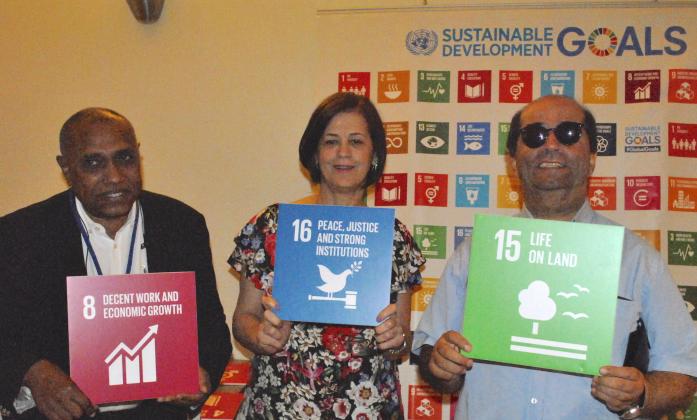
Before the sessions of the third day of the HLPF began, the Stakeholder Group of Persons with Disabilities held a global coordination meeting in the UN, calling in participants from around the world, and updated members on progress and plans for the Forum. Next Monday, July 18th, the Stakeholder Group is holding a town-hall style discussion on the Contributions of Persons with Disabilities in the HLPF Voluntary National Reviews at the Ford Foundation in New York, close to the UN. The discussion will include representatives of persons with disabilities from Germany, Morocco, Latin-America, the Philippines and Uganda, and is open to all. More information here.
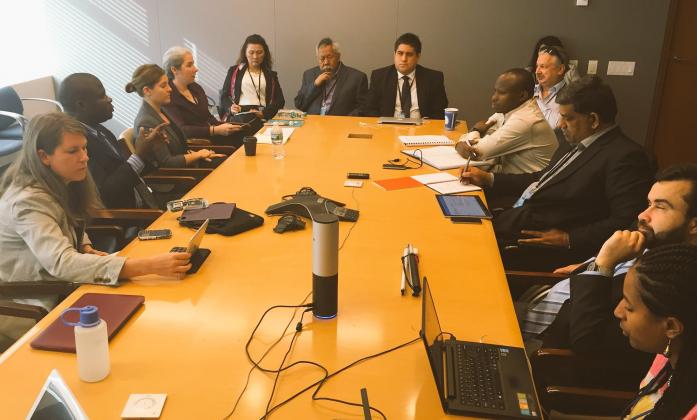
The Stakeholder Group prepared four interventions for events throughout the day, however space for interventions has been shrinking at the UN. Although Persons with Disabilities have been one for the most prepared groups, co-chairs of round tables have been cutting short the time for civil society to make intervention. The Stakeholder Group of Persons with Disabilities was only able to deliver two out if its four prepared interventions. The two which were not given to to be delivered had been prepared by Mohamed Ali Loutfy for the discussion on 'Creating ownership at the national level', and Mosharraf Hossain of ADD International for the discussion on 'Mainstreaming SDGs into national policies, plans and strategies and integrating the three dimensions of sustainable development'.
"We, persons with disabilities, know that to sign up to an international commitment is one thing; to implement it at national level is much more challenging. We have seen this with the UN Convention on the Rights of Persons with Disabilities. Persons with disabilities consider that the 2030 Agenda opened doors for their participation and recognizes us as active contributing members of society: who must not be left out or behind. How can national governments reach out to include the furthest behind in the implementation process of the SDGs, what kind of consultation mechanism should be put in place that is accessible for persons with disabilities?" - Mohamed Ali Loutfy (Statement not delivered but submitted to the UN to be published)
"Mainstreaming SDGs into national policies, plans and strategies and integrating the three dimensions of sustainable development. The principle of ‘leave no one behind’ means bringing marginalised groups into the mainstream of all development policies. Their rights can no longer be seen as niche issues. This calls for a new approach to forming national policies, plans and strategies. How can we ensure that national policies, plans and strategies live up to the SDGs’ ambitions on ‘leave no one behind’, by mainstreaming the rights of marginalised groups, such as the inclusion and rights of persons with disabilities, across all three dimensions of sustainable development?" - Mosharraf Hossain (Statement not delivered but submitted to the UN to be published)
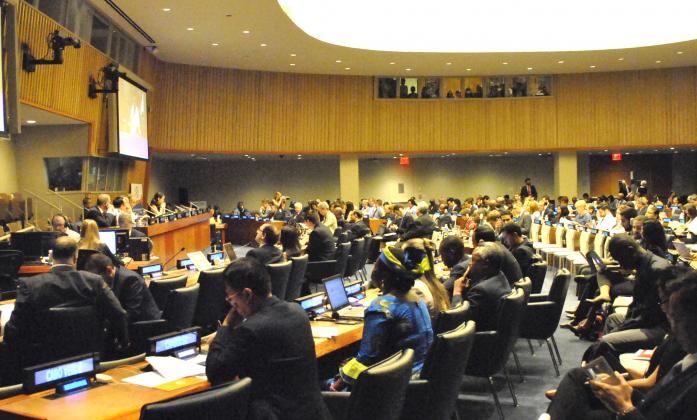
The first opportunity for an intervention by a member of the Stakeholder Group of Persons with Disabilities came during the discussion on 'Vertical cooperation – local authorities and national governments working together for implementation of the 2030 Agenda' Lauro Purcil of the ASEAN Disability Forum exaplined that "Many disability-inclusive SDG commitments fall naturally within the remit of local authorities - for example, the commitments in SDG 11 on inclusive human settlements. Yet there is a risk that local authorities will not be adequately funded and supported to deliver on these commitments." He then asked, What can be done to empower local authorities to deliver on the SDG commitments, including commitments on disability?
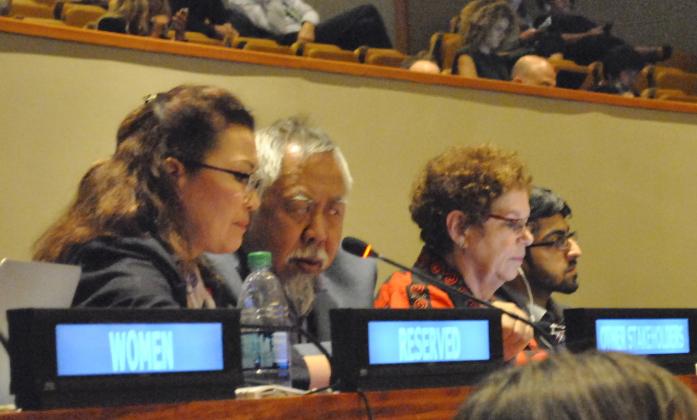
During the final session of the day, discussing 'Challenges in mobilizing means of implementation at national level: financing, technology, capacity building, Mr. Abdelmajid Makni, Chairperson of RHRC, Morocco, raised that 'if persons with disabilities are not to be left behind, dedicated financial resources will be needed. The Addis Ababa Action Agenda sets out responsibilities to provide these resources, yet in many countries budgetary allocations for disability are extremely low or even non-existent.' He asked "How can we ensure that the FFD and SDG follow up and review processes hold governments to account for meeting their responsibilities to finance ‘leave no one behind’?"
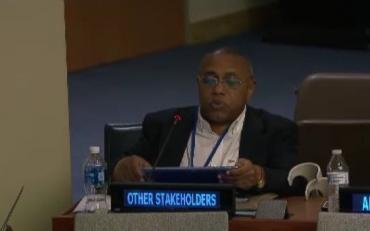
Alongside the HLPF, during a side event hosted by UNICEF to discuss the 'Evaluation in the service of national follow up and review of progress towards the SDGs Evaluation: Service for Future National SDGs Reports'. Ambrose Murangira and Yetnebersh Nnigussie participated, raising the questions of How to take steps to ensure not to leave anyone behind, and How to link the SDG indicators to human rights indicators?
The main sessions of the HLPF are broadcast live on the UN's WebTV with closed captioning, and will be made available for replaying later.
Follow us throughout the HLPF online here: http://www.internationaldisabilityalliance.org/events/high-level-political-forum-2016
And by using #HLPF2016 #SDGs and #LeaveNoOneBehind
